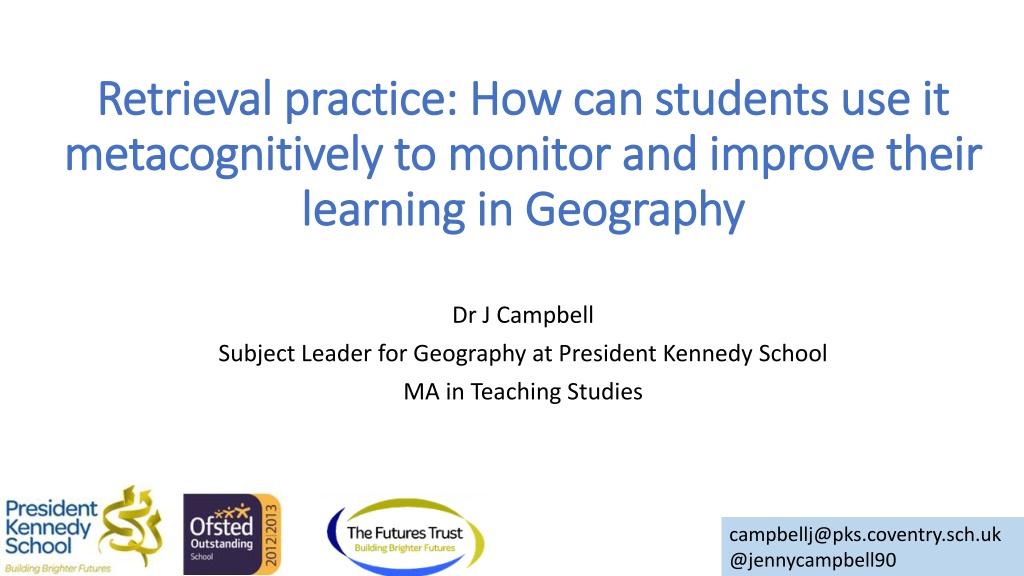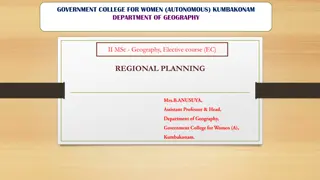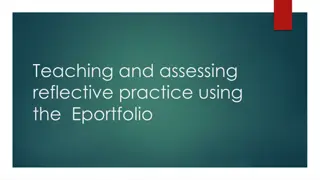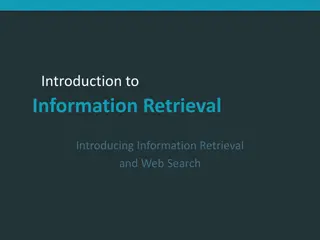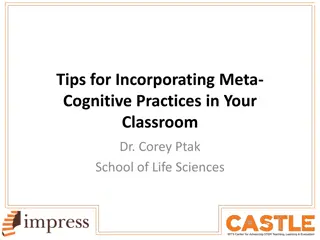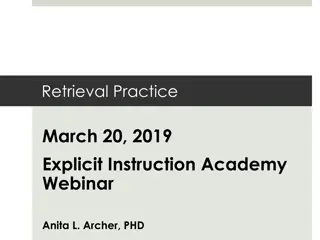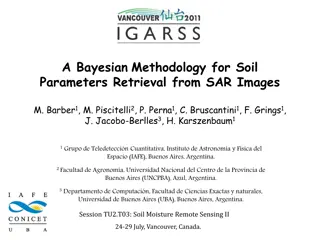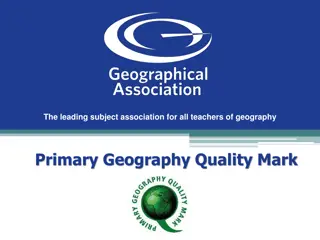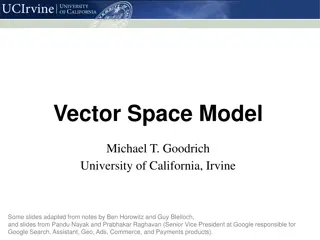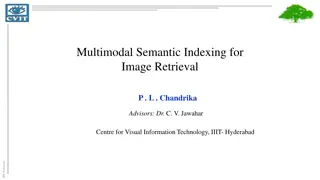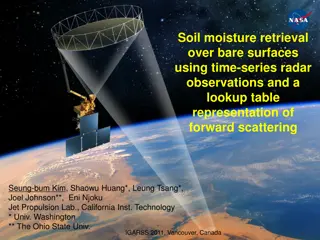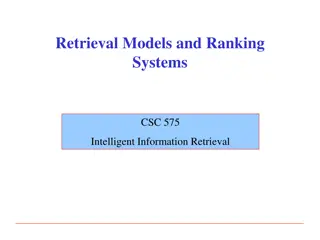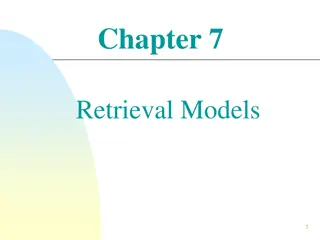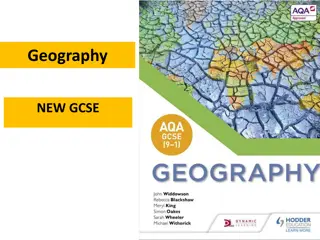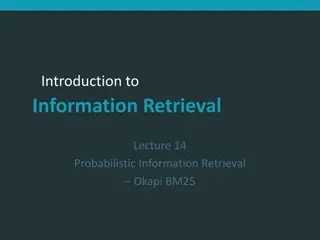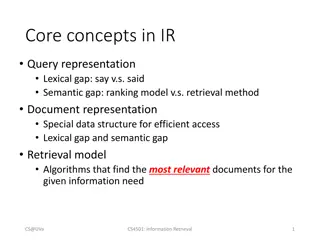Enhancing Geography Learning Through Metacognitive Retrieval Practice
Students in Geography can improve their learning by applying metacognitive retrieval practice techniques. Retrieval practice helps activate prior knowledge, enhances memory retention, and fosters critical thinking skills. Metacognition, which involves planning, monitoring, and evaluating one's learning process, allows students to become self-regulated learners. Encouraging the use of retrieval practice at home can significantly boost students' revision effectiveness and overall learning outcomes.
Download Presentation

Please find below an Image/Link to download the presentation.
The content on the website is provided AS IS for your information and personal use only. It may not be sold, licensed, or shared on other websites without obtaining consent from the author. Download presentation by click this link. If you encounter any issues during the download, it is possible that the publisher has removed the file from their server.
E N D
Presentation Transcript
Retrieval practice: How can students use it Retrieval practice: How can students use it metacognitively to monitor and improve their metacognitively to monitor and improve their learning in Geography learning in Geography Dr J Campbell Subject Leader for Geography at President Kennedy School MA in Teaching Studies campbellj@pks.coventry.sch.uk @jennycampbell90
The power of retrieval practice Helps with the activation of prior knowledge, helping to free-up the working memory. Self-testing is also a way for students to learn. Not just for recalling facts evidence suggests it helps with systemic and synoptic thinking. It is a crucial revision tool. Schema building. Opportunity for check-in.
The power of retrieval practice Retrieving information is not just useful for recalling facts, but is used when explaining or analysing a concept, transferring knowledge to solve a new problem and when stimulating new ideas (Karpicke and Grimaldi, 2012). The four domains of learning, adapted from Krathwol et al. (1964).
Metacognition vs cognition Cognition is the process of learning Metacognition is the ways learners monitor and purposefully direct their learning (EEF, 2019) It is students learning how to learn. It teaches students to become self-regulated learners, actively engaging in and reflected on their own learning. Metacognition enables students to use cognitive strategies such as retrieval practice to help regulate their own learning
Metacognition Planning encouraging pupils to think about the goal of their learning how they will approach the task Monitoring the need, while undertaking the learning task, for pupils to assess the progress they are making Evaluating appraising the effectiveness of their learning and the strategies used (EEF, 2019)
Metacognition and retrieval at home Students often have little idea about the most effective way for them to learn/revise at home (Karpicke, Butler and Roediger, 2009; EEF, 2019). Students choose comforting/less challenging techniques of re-reading and highlighting when revising, giving them an illusion of competence (Karpicke, Butler and Roediger, 2009, p. 471) Retrieval is one of (if not the) most effective revision tools. Taking ownership of learning, evaluating areas of strength together with areas which need revisiting.
Metacognition and retrieval at home (EEF, 2019)
Metacognition through retrieval Evaluation Make sure when students have completed and marked a retrieval task in class they have time for reflection, asking themselves: Which questions did I get right? Why? Which questions did I get wrong? Why? What do I now need to go away and revisit/revise? How do I do this?
Retrieval practice in the classroom 1. What is energy security? 2. State two benefits of renewable energy. 3. What is the role of a decomposer in an ecosystem? 4. Explain one negative impact of deforestation. 5. Why does soft rock erode more easily than hard rock? 6. State two physical causes of flooding.
Metacognition through retrieval practice Planning Students are involved in building their own quizzes The question design will need modelling in the classroom, and will take time before students can do this independently Students will need to have completed retrieval regularly in class, to buy-in to the strategy
Metacognition through retrieval practice Monitoring Once a student has designed their own quiz, they will need to wait 3 days and answer the questions from memory. Once the quiz is completed, they can then mark their answers using their class books/revision guide.
Metacognition through retrieval practice Evaluation Make sure once students have completed and marked the quiz, reflect, asking themselves: Which questions did I get right? Why? Which questions did I get wrong? Why? What do I now need to go away and revisit/revise? How do I do this?
Metacognition through retrieval practice Students in my GCSE and A level classes now complete this cycle at home once a week. Plan Design the quiz It is their main form of revision. Complete and mark the quiz Monitor What do I now need to revise? Evaluate
Metacognition through retrieval practice This is the students actively monitoring and improving their own learning. It is important to note: This will take time it is not a quick process Retrieval needs to be embedded in the classroom first students need to see the results before they do it independently. Conversations in the classroom are crucial to ensure students are carrying it out effectively. The marking is not the final step of the process they must use this to target additional revision. This should be their main form of revision.
Key findings The use of metacognition through retrieval practice has a positive impact on both confidence and long-term learning of KS4 students in Geography when used regularly and consistently. Students commented on the importance of being able to identify their own strengths and weaknesses without relying on teacher support. They highlighted that once they realised the benefits in using retrieval practice, they became more confident using it at home, monitoring and evaluating their own learning effectively. Retrieval practice needs to be carried out regularly to have the greatest impact. The need for motivation and engagement is crucial for retrieval practice at home to work; the effort needs to come from the student.
Key findings Students thought that retrieval practice had improved their progress in Geography, including: their ability to recall knowledge applying that knowledge in exam questions forming links between different concepts, a critical skill for Geographers. The study suggests that those students who practised retrieval at home had a greater improvement in their confidence and academic learning than those who only practised it in lessons. Students in this study opted to conduct retrieval practice when revising for other subjects, as they believed that it had really benefitted them in Geography.
Pupil voice Forming my own questions helped me to interpret and understand the topics in my own way, meaning I remember them better. I started to understand Geography better, I love it a lot more. I ve got a lot more passion for the subject and it is really is very interesting to me. I want to learn more! before, I relied on the teacher, but now I can do it myself, it makes me a lot more confident to start with I found it hard and didn t really like it. But actually, due to my improvements I got more confident It has played a significant part towards helping me strengthen my memory, as well as tackling my weaker areas in Geography. making your brain work like hard to recall the erm information helps you to remember if for longer. the more confident and say like comfortable you get with it, the more you feel you can like change it to suit you
Key findings - modelling Modelling is a fundamental element for helping students to use retrieval practice to apply the knowledge they are recalling. The modelling, scaffolding and support gave the students the confidence to use metacognition at home, initially through homework, but eventually through their own choice. The students can only be successful in self-study if they are shown how to effectively conduct retrieval practice independently. This includes showing students how to select questions/topics, and what do do once they have marked their answers. This scaffolding then needs to be gradually removed.
Key take-aways Consistency both in and out of the classroom Buy-in in the classroom before trying it independently Scaffolding/modelling is critical It takes time! Any questions? campbellj@pks.coventry.sch.uk @jennycampbell90
